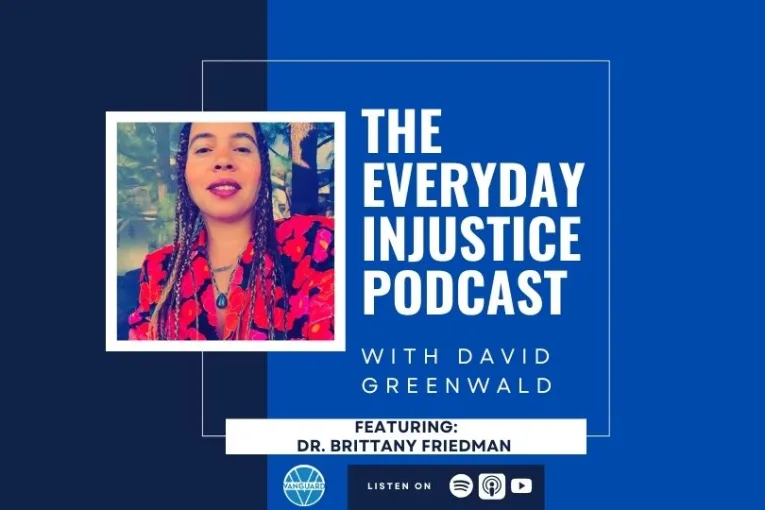
In a new episode of Everyday Injustice, sociologist and author Brittany Friedman discusses her new book Carceral Apartheid, exposing the racialized architecture of the U.S. prison system and its deep historical roots.
Friedman coined the term “carceral apartheid” to describe how modern systems of incarceration enforce racial division and social control. Drawing parallels to South African apartheid, she argues that the U.S. relies on prisons, jails, detention centers, and policing not simply for punishment but to uphold a racial hierarchy. “Apartheid is alive and well,” she says, “and it’s enforced through carceral systems.”
Her journey to this research began with her family history—her grandmother participated in a protest of evicted sharecroppers in 1939 Missouri. That legacy of resistance led Friedman to study the roots of the prison movement in California and the formation of racially segregated prison gangs—developments she links directly to the state’s own design and complicity.
At the heart of Friedman’s critique is the economic exploitation of incarcerated people and their families. She exposes how “carceral debt”—from pay-to-stay policies to overpriced commissary goods—traps families in cycles of poverty. “States force communities to pay for the consequences of mass incarceration,” she explains, detailing how attorneys general have even sued people for unpaid incarceration fees.
Friedman also highlights the continuity between today’s prison system and historic racial oppression, from Black Codes and convict leasing to Jim Crow and mass incarceration. “It’s not a coincidence,” she says. “This is a system designed with racist intent—on purpose, not collateral.”
Yet Carceral Apartheid isn’t just a diagnosis; it’s a call to action. Friedman ends her book with what she calls an “Invitation to Awaken,” encouraging readers to recognize their role in perpetuating or challenging carceral logics.
“People survived,” she reminds us. “And they’re still organizing. Still pillars in their communities. That’s human resilience—and it gives us hope.”
Carceral Apartheid is available now through independent booksellers.
Categories:
Tags:
Brittany Friedman Carceral Apartheid Mass Incarceration podcast
This post was originally published on this site be sure to check out more of their content.









